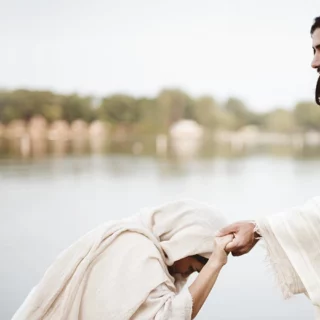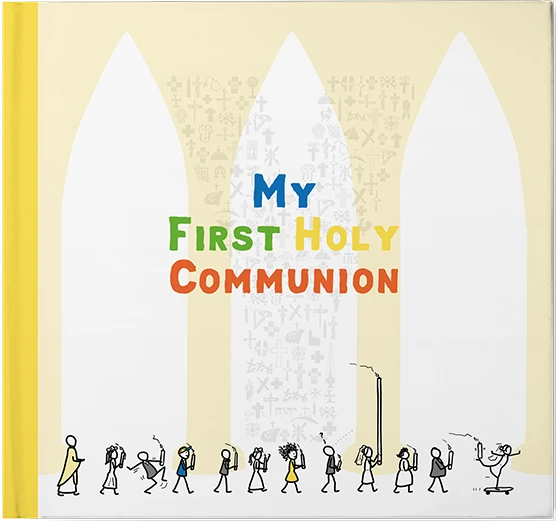

Credopedia
What are the 3 main catholic prayers?
Praying is part of the daily routine of a Christian, but what are the most important Catholic prayers? Here you will find an overview.
Definition
Prayer
In almost all religions, prayer is one of the most significant practices by which we express veneration and acceptance of the divine. Human beings have always shown reverence to the mysterious and tried to come to terms with it. This is how prayer practices, rites, words and even so-called magic spells have been developed to draw closer to God. Christian prayer has nothing to do with magic, but is rather an expression of relationship. Christians pray to the triune God, and ultimately all prayers are addressed to this God. You can also call upon the help of the saints, but never worship them. YOUCAT 469 says: “Prayer is turning the heart toward God. When a person prays, he enters into a living relationship with God.”
Christianity has five main types of prayer. „The five main types of prayer are blessing and adoration, prayer of petition, prayer of intercession, prayer of thanksgiving, and prayer of praise.” (YOUCAT 483) You cannot be a Christian without praying. „From the earliest times Christians have prayed at least in the morning, at meals, and in the evening. Someone who does not pray regularly will soon not pray at all.“ (YOUCAT 499). The private individual prayer is important, but even more important is the communal prayer of the “Liturgy of the Hours,” or the liturgy of the Church.
What does the Holy Bible say?
Even in ancient times, the people of Israel called upon the “name of the Lord” (Gen 4:26). The Psalms, which are 3,000 years old, are still being prayed today. Jesus lived his life entirely based on prayer, and he taught his disciples to pray the “Our Father.” Famous Bible passages:
- My soul magnifies the Lord, and my spirit rejoices in God my Savior, for he has looked on the humble estate of his servant. (Lk 1:46ff. The “Magnificat”)
- Now Jesus was praying in a certain place, and when he finished, one of his disciples said to him, “Lord, teach us to pray, as John taught his disciples.” 2 And he said to them, “When you pray, say: “Father, hallowed be your name. Your kingdom come. Lk 11,1-2
- Rejoice always, pray without ceasing, give thanks in all circumstances; for this is the will of God in Christ Jesus for you. Do not quench the Spirit. (1 Thess 5,16-19)
- … Pray(…) at all times in the Spirit, with all prayer and supplication. To that end, keep alert with all perseverance, making supplication for all the saints. (Eph 6:18)
- Do not be anxious about anything, but in everything by prayer and supplication with thanksgiving let your requests be made known to God. (Phil 4:6)
A short YOUCAT-Catechesis
How to pray?
Maybe we can learn something from mountain climbers. There is a saying that being in distress bring us to prayer. There is also a joke about a mountain climber who slipped and is hanging over a small crevasse. He manages to hang on, but his strength is slowing failing him. Desperately he cries out to Heaven: “Is there anyone there?” – “O, yes!” the answer reverberates back from the clouds. “What am I supposed to do?” – “Say a prayer, my son – and then let go!” The mountaineer mulls this over for a bit; he does not have much time. Finally, he cries out: “Is there anyone else there?”
There is some truth in every joke, signifying what people think deep down inside. In the case of prayer, perhaps they think: “Okay, maybe there is a God. But it’s better not to rely on him too much. It is better to rely on things you can actually see and touch.” And this is why they might regard people who do pray (or even only claim to) not with admiration, but with skepticism. Aren’t they just daydreaming to avoid dealing with the harsh reality?
It is the other way around
Prayer is the most intense possible contact with reality.
If God really exists — and Christians believe he does — then God is reality itself, and is even more real than what we see and deem as real in front of our eyes. If this is true, then being in relationship with God — which is prayer — is a very natural thing to do, almost as natural as “breathing, eating and loving” (YOUCAT 470). Prayer works under five conditions:
- The God that Christians adore exists.
- This God is not an obscure, nameless kind of energy wandering through space.
- This God is somehow a person with a spirit and a free will (because if every human being possesses these characteristics, God does so three times over).
- This God is interested in us.
- You can talk to this God always. “To know God and to serve and worship him has absolute priority in our lives,” says YOUCAT 352.
What if you are insecure?
Martin Buber recounts a Hasidic legend that cuts right to the main point. Either God is just some kind of rumor and prayer is therefore just blindly groping in the dark, or HE is real, and therefore prayer is the only adequate response. The legend goes as follows: “A reformer came to Rabbi Levi Jizchak, to destroy the proofs upon which faith is built. The Rabbi silently listend to the scoffer, and then looked straight into his face and replied with one sentence: ‘But maybe it is true!’ They say that the scoffer shivered as he looked at the wise old man. Finally, the Rabbi said: ‘My son, the great people of the Thora, with whom you have quarrelled, have wasted their words on you. You laughed at them when you left them. They have not been able to bring God to your table, and I cannot do it either. But, my son, reflect: maybe it is true.” The reformer tried to summon up all his inner strength, but the horrible “maybe” resounded within him and broke his resistance.
Do you first need to believe before you can pray?
Or do you first need to pray in order to believe? YOUCAT 469 says: „Prayer is the great gate leading into faith.“ There is a certain German Pop Star who once recounted how she found her way back to faith in the midst of a dramatic stage of her life. Weighed down and addicted to drugs, she lived in a run-down house in Amsterdam and did not know how to carry on: “This is when I cried out the whole night for Jesus. In the morning I knew: “He is there!” I also tend to believe that prayer comes before believing. Through prayer, you find faith — once in the beginning, and then over and over again throughout your life.
Prayer is relationshiop
If we come from God, if we are kept in existence by God and are dependent upon him every second of our lives, and if we always run into his arms no matter in which direction we turn, then prayer is the fundamental way in which we can stay grounded and keep in touch with reality. Prayer, YOUCAT 469 says: “is turning the heart toward God. When a person prays, he enters into a living relationship with God.”
Well said, but how can we get there if we have never prayed before? Maybe we need to keep note of one fact: “Of course, one cannot learn to pray in the same way one learns a technique. As strange as it sounds, prayer is a gift one obtains through prayer” (YOUCAT 469). You could even say that prayer is already inside of you long before you start praying. “It” prays within us, only we are not aware of it, because seldom are we really connected to ourselves. We run around, are distracted (or are looking for distractions), are busy with a million things, and we never really connect to ourselves and get estranged from our own hearts. If we were really in touch with ourselves, we would discover the secret of every human soul: there is an axis deep down inside my soul pointing towards Heaven, and which does not end until it arrives at God. You cannot destroy this axis. It is also not dependent upon our particular circumstances. Something inside of us is yearning for God and already knows Him long before we officially make contact with him.
We read in the Bible: “Likewise the Spirit helps us in our weakness. For we do not know what to pray for as we ought, but the Spirit himself intercedes for us with groanings too deep for words.” (Rom 8,26)
How to pray
The First Rule is: Schedule it. You will never enter into a conversation with God if you do not make time and let him speak into your life.
Second Rule: You need a place to pray. Maybe this should not be your bed, where you are in danger of falling asleep. But it could be next to your bed, where you spend some time with God in the morning or in the middle of the night.
Third Rule: Try to have silence when you pray. Maybe lighting a candle will help. Turn off all distractions. Turn off your smartphone. If you have peace inside of you, then you can also be with God in the middle of a cramped train. (I love praying during long rides in the car.)
Fourth Rule: Switch between traditional and impromptu prayers, which well up from your heart. If you only pray preformulated prayers, you might be in danger of becoming a bit stiff; if you only pray freely, you might still end up saying the same things.
Fifth Rule: Try to make worship and gratitude take the forefront when you pray — like this you can also always bring to God whatever you carry in your heart: “And I tell you, ask, and it will be given to you; seek, and you will find; knock, and it will be opened to you.” (Luke 11:9)
Sixth Rule: Don’t talk to God in an artificial way, but rather as you would talk to a friend. He understands you!
Seventh Rule: Pray with friends. Adore the Lord together at a prayer event. Organize a prayer worship meeting. Meet for prayer and pray with the Bible or a prayer book.
Eighth Rule: Don’t believe God is a lion ready to pounce on you if you come too close. God is beautiful.

YOUCAT Digital
Discover our digital products, which will help you to grow in faith and become missionaries yourself.







